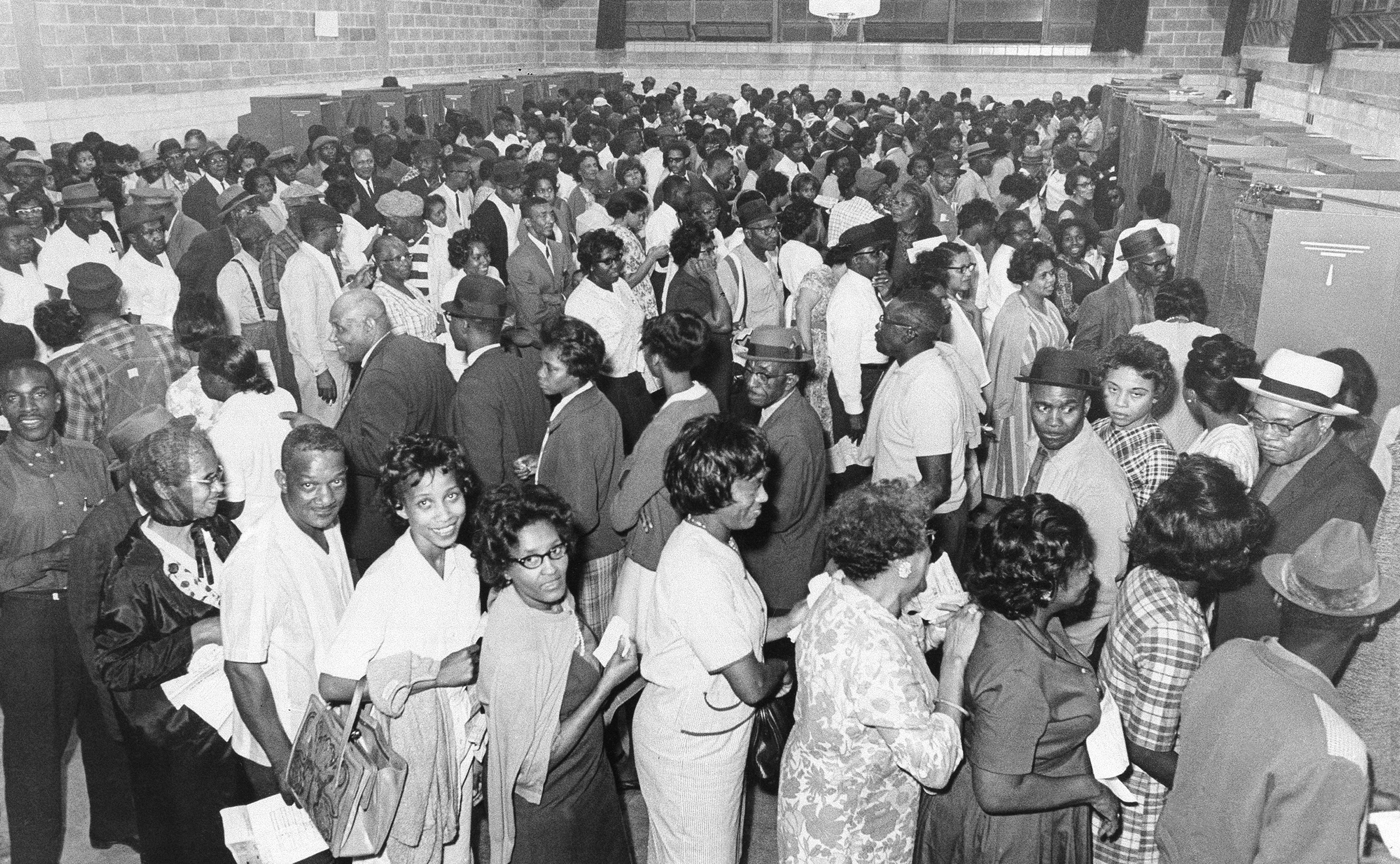
The outrage and condemnation came fast in September when President Donald Trump encouraged his supporters to commit voter fraud. “Let them send [a mail-in ballot] in, and let them go vote,” Trump said in Wilmington, N.C., urging backers to test the mechanics of North Carolina’s system by voting twice. A U.S. President encouraging citizens to commit a felony is alarming enough, but in the next breath, Trump acknowledged intentions that were arguably more pernicious: he said Republicans in the state would also fight in court to halt “unsolicited votes.”
“Unsolicited votes” indeed. Trump has a tendency to say the quiet part out loud, but in Wilmington, he was practically shouting that not all votes are created equal. And in North Carolina in particular, that means one thing: suppress Black voters. This election cycle, Trump allies have gone to court to defend a restrictive voter-ID law and to make it more difficult for voters to correct mistakes on mail-in ballots. Those measures have been shown to disproportionately affect Black voters.
However appalling, this shouldn’t come as a great surprise. After Black people were brought to the New World as slaves, Black disenfranchisement was overt and uncontroversial. Over the centuries, despite constitutional amendments and landmark legislation, it’s a history the country can’t shake. The past decade has brought a resurgence of the practice, fueled by a Supreme Court decision and a President who thrives on racial division. And so today, amid a national reckoning about racial injustice, Trump’s re-election may hinge on the success of his efforts to suppress the voices of Black voters.
In June 2013, the Supreme Court overturned key provisions of the 1965 Voting Rights Act, declaring that measures in question were meant to address “decades-old problems” and that the Constitution was “not designed to punish for the past.” Within hours, North Carolina GOP officials touted plans for a new law to curtail early voting, require ID at polling places and end same-day voter registration–all policies they understood would impact Black voters. A court said in 2016 the effort to suppress the state’s Black vote was carried out with “almost surgical precision.”
Over the past four years, such measures have become central tactics for Trump allies in the strategically critical state. As North Carolina experiences a surge in voting by mail, Republicans have gone to court to make it easier to reject mailed ballots on technicalities. Already, election officials have contested some 6,800 votes–a number bound to grow as more people vote. The state is about 20% Black; 40% of the contested ballots come from Black voters.
Maneuvers like these could be key to a Trump victory across the country, voting-rights advocates say. Black Americans are less likely to have the identification required by the wave of voter-ID laws enacted by Republican legislatures in the past decade. Predominantly Black neighborhoods are more likely to face long lines on Election Day. Republican-aligned groups have spread misinformation to discourage Black voters, like the claim that early-voting data would be used for debt collection. The list goes on.
Efforts to suppress the Black vote may be front and center in 2020, but they’re nothing new. After the Civil War, the 15th Amendment banned racial voting restrictions but left states free to bar Black voters on other grounds. The Jim Crow era brought a maze of laws in the South designed to do just that.
The Voting Rights Act was supposed to end these discriminatory practices. For a time, the tide seemed to be turning, but today that progress is slipping away. There’s more at stake in this election than whether this regression helps deliver a win to Trump. Racial voter suppression, once primarily a regional blight, has “metastasized across the country,” says Sherrilyn Ifill, the president of the NAACP Legal Defense and Educational Fund. “On the table will be whether this is in fact a sound democracy.”
More Must-Reads from TIME
- Cybersecurity Experts Are Sounding the Alarm on DOGE
- Meet the 2025 Women of the Year
- The Harsh Truth About Disability Inclusion
- Why Do More Young Adults Have Cancer?
- Colman Domingo Leads With Radical Love
- How to Get Better at Doing Things Alone
- Michelle Zauner Stares Down the Darkness
Write to Justin Worland at justin.worland@time.com
